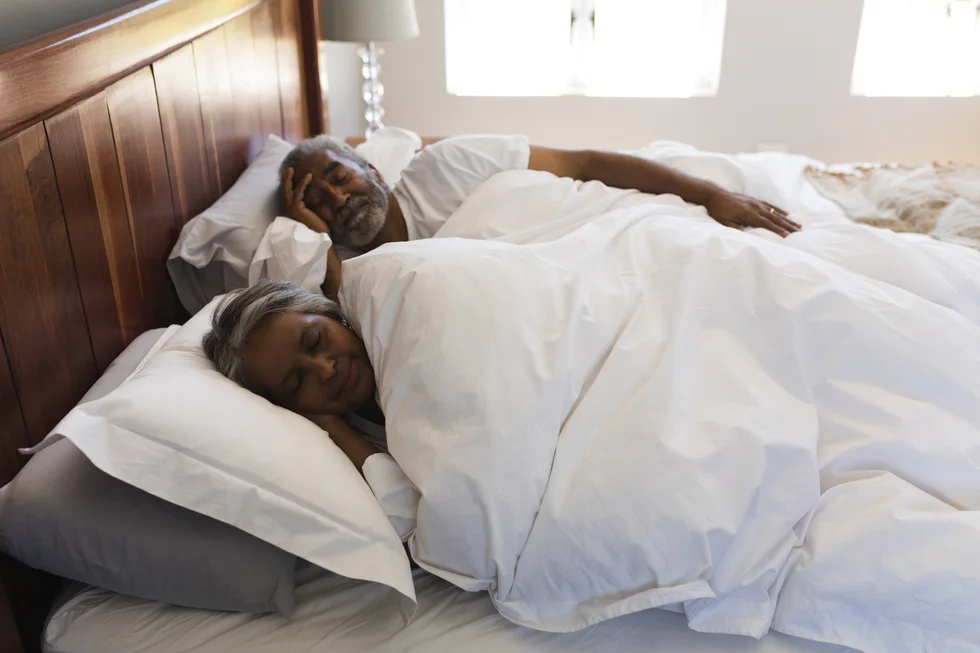
Coaxing Back Desire After Menopause
Loss of sexual desire is a major menopause-related problem for many women. Dr. Barb DePree shares some expert tips for dealing with loss of sex drive.
Jul 27, 2019
Jan 28, 2021
Sexual Health
Director of the Women's Midlife Services at Holland Hospital
Holland, MI
Dr. Barb DePree, a gynecologist in practice for over 30 years, specializes in midlife women's health. She is certified through the North American Menopause Society as a provider, and was named the 2013 NAMS Certified Menopause Provider of the year. Dr. DePree currently serves as the director of the Women’s Midlife Services at Holland Hospital, Holland, Michigan. In 2018, she completed a certification in Genetic Cancer Risk Assessment.
A member of NAMS, ACOG and ISSWSH, Dr. DePree has been a presenter for the ACOG CME audio program. She has served as a key opinion leader for Shionogi, AMAG, Duchesnay, Valeant, Wyeth and Astellas leading physician education, and participating in research projects and advisory panels.
Finding that products helpful to her patients’ sexual health were not readily available, Dr. DePree founded MiddlesexMD.com that shares practice-tested, clinically sound information and products, including guidance for working with partners and caregivers. Dr. DePree publishes regularly on her own blog, providing updates on research in women’s sexual health, as well as observations and advice based on her work with women in her practice. Sharecare named her as a Top 10 Social Healthmaker for Menopause in September of 2013. In 2017, she was named among the “Top 10 Best Menopause Blogs” by Medical News Today. Dr. DePree also publishes podcast interviews on women in midlife, exploring the ways they have made the transition in their lives and careers.
Full BioLearn about our editorial policies

Loss of sexual desire is a major menopause-related problem for many women. Dr. Barb DePree shares some expert tips for dealing with loss of sex drive.
In my practice, I hear my patients talk about a wide range of menopause-related struggles. Some of the stories I find most affecting are the ones related to loss of desire, which about half of women over age 40 experience. The women are just so sad—and rightly so. It's a cruel irony that at the exact moment children leave the nest and you have time and privacy to devote to sex, desire disappears.
Some women honestly don't mind, and there's nothing wrong with just letting sex go (although your partner might not agree, and you'll be foregoing all the health benefits!). Others feel the loss keenly. They are stunned by their sudden inability to access the feeling that has always been an easy path to connectedness. Oh, the things we take for granted in our youth!
There are a few names for this condition: hypoactive sexual desire disorder or hypoactive sexual interest and arousal disorder. How do you know if you have it? If you are unsatisfied with how often you consider or pursue sex, and there's no medical reason you don't consider or pursue it, then you have it.
If it bothers you, if you're like my patients who ask, "Isn't there something I can do?" then keep reading. Although companies are continually trying to create a drug that will enhance desire (Vyleesi is a recent entry on the market, and we'll post about it soon), there isn't a silver bullet yet like there is for men, who can take Viagra or a number of alternatives. Desire in women is the result of a complex balance of physical, psychological and social influences. (If you haven't come across it yet, now's a good time to read the MiddlesexMD Recipe for Sexual Health.)
While there isn't an easy answer, there are numerous things you can try, which you can explore from this page on our website. Look in the right-hand column for possible underlying causes, and follow the links to actions you can take.
If nothing you see works for you, talk to your medical professional. Desire is well worth working to hang onto!
Barb DePree, MD, has been a gynecologist for 30 years, specializing in menopause care for the past 10. Dr. DePree was named the Certified Menopause Practitioner of the Year in 2013 by the North American Menopause Society. The award particularly recognized the outreach, communication and education she does through MiddlesexMD, a website she founded and where this blog first appeared. She also is director of the Women's Midlife Services at Holland Hospital, Holland, Michigan.